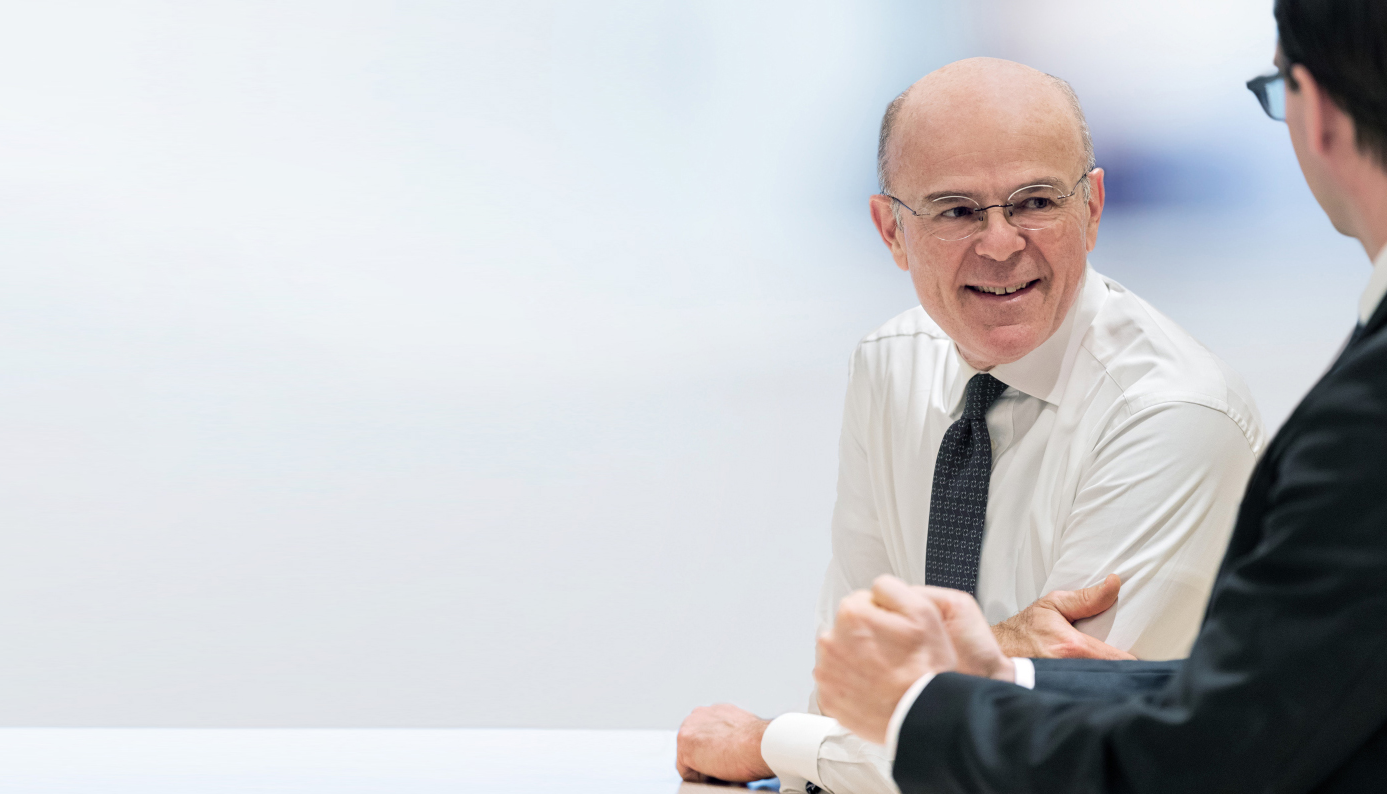About Zurich

Mario Greco on meeting the challenges ahead
Zurich’s Group CEO shared industry insights in special Reuters event.
Recovering from the COVID-19 pandemic, the urgency of climate change mitigation and navigating cyber security threats in an increasingly digital-dependent world were some of the key challenges addressed by Zurich Insurance Group CEO Mario Greco during an online conversation hosted by Reuters on June 23.
The discussion between Greco and Carolyn Cohn, Reuters’ Insurance & Fund Management Correspondent, was part of the news organization’s “The Future of Insurance USA 2021” event.
Greco was very positive in his remarks about Zurich’s financial strength and ability to meet the evolving needs of its customers, even with rising natural catastrophe (CAT) costs and other impacts on the insurance industry. At the same time, the CEO expressed great concern about the response of governments and society at large to growing challenges that are far beyond the scope of insurers or any private companies.
Pandemic confirms need for public-private initiatives
Asked about how COVID-19 has affected Zurich, Greco acknowledged, “Of course, the pandemic has been the most unexpected and most impactful event of the last many years.”
“From the beginning, we said ‘This is a human emergency. This is very different from everything we’ve seen before, and our first and most important priority is to protect everyone we can protect.’”Greco noted significant successes of the company, from operational essentials like a rapid transition to company-wide remote working to the global philanthropic effort of the Z Zurich Foundation’s fundraising campaign to help UNICEF's vaccination efforts. (See our story on page 10 of this issue for more on Zurich’s COVID-19 response.)
As for the role of the insurance industry specifically in dealing with the pandemic, however, Greco stressed the absolute necessity for public-private initiatives.
“An event like a pandemic should be absorbed by society — public and private [sectors]. It cannot be passed to the private sector alone,” he explained. “The reason is that this is a global and undiversified event, which is typically something that insurance companies cannot face by themselves. So, the way to handle these kinds of events — and there are many others, like nuclear damages or cyber catastrophes — is to create a private and public partnership, where insurance companies can contribute up to given limits, and can also give the capabilities to serve the customers and resolve the [coverage] issues. But part, or the biggest portion of the solution, will have to be led by governments, by societies, and by the public.”
Greco expressed some frustration with the lack of progress in aligning governments and private industries.
“We’ve been advocating with governments around the world — in the U.S., in Europe, everywhere — for these public-private schemes, and I have to say, without great success so far, but I still hope that this will be possible in the future.”
Asked why governments have not been as proactive as they should be in this regard, Greco said, “I’m afraid that here is where the political agenda and the political timing conflict, in a sense, with the social needs. You know, governments are typically kind of short-term oriented. They need to do things now, and they have an election coming ...”
He continued, “I guess the feeling they have is, ‘OK. We’re not going to have another pandemic next year. I’m not going to make it a success [in an election] if I announce that I’m prepared for the next pandemic, which may come in 10, 15, 20 years’ time ... I’ll leave it [preparing for the next pandemic] to somebody else because it’s a very complicated thing. It might be expensive, and it might end up raising taxes or costs and prices.’ I think this is kind of the emotional resistance to tackle the issue.”

Weathering the climate crisis
Greco said public-private partnerships, and governments’ central role in such partnerships, is also pivotal in responding to climate change. Zurich has been an industry leader in carbon use reduction and overall sustainability efforts, and that has included some tough choices like stepping away from insuring or investing in thermal coal, oil sands and oil shale businesses.
But the CEO says with some other insurers still covering those industries, he sees a true carbon tax from governments around the world as the real incentive for transforming to greener business models.
“Only a real carbon tax will help convince any chief financial officer that a transformation is convenient [economically], it’s possible, and eventually will help create a sustainable condition for the planet that we’re all looking for,” Greco said.
He also stressed that Zurich is not interested in summarily ending relationships with customers in those sectors, but rather wants to help them find a new path.
“The much more fruitful job is the one of helping with the transformation of the industry, to continue to work with clients who want to move their industry from carbon-heavy to carbon-negative [use],” Greco said.
Asked about the impacts of several bad hurricane seasons and the climate trend of more frequent and severe storms, Greco was confident about Zurich’s ability to be financially resilient.
“Look, the surprise will be if we get a good year [in terms of CAT losses],” he said, “but yeah, we’re prepared. We’ve had heavy CATs in the last three years, so we know what that is.”
Mitigation services will drive cyber strategies
Cyber security is also an area where insurance cannot be seen as the main provider of protection, according to Greco. The fast-evolving nature of cyber threats (including more frequent ransomware attacks), the rapid pace of technological advances overall, and the potential for wide-ranging threats to energy grids, supply chains and more, make the cyber landscape very different than many of the more traditional risks covered by insurance policies.
Zurich does offer Cyber Insurance with liability and non-liability coverage that can be beneficial to businesses, but Greco notes the cyber risk mitigation services the company offers are becoming more the focus of how Zurich helps customers navigate digital dangers.
“We’re very, very careful in underwriting cyber risks,” Greco stressed, but added, “We are investing in skills to help protect customers and advise customers on what kind of protection they need. We are hiring skilled people to help customers [mitigate risks].”
“Companies will need to invest much more money [in cyber mitigation]. This is a very, very different society than the one that I was born in, where everything was on paper and the problem was ‘Where do you store the paper?’ Now everything is stored in some [computing] clouds, and the question is ‘How do we protect these clouds?’ and ‘Who owns the clouds?’”
Looking ahead with confidence
Despite the uncertainty of these challenges discussed in his conversation with Cohn, Greco noted Zurich has fared better than much of the insurance industry even as COVID-19 and CAT losses have impacted profitability. He anticipates a major rebound in 2022 and points to the acquisition of MetLife’s U.S. property and casualty business by Zurich subsidiary Farmers Group, Inc. and Farmers Exchanges1 as just one indicator of the company’s continued financial strength and stability.
“The business is coming back very strongly on growth and profitability,” Greco said, also noting that Zurich continues to see favorable response in how it supports its customers.
“During this time, we gained customers, we’ve settled claims and our customer satisfaction rating reached a historical peak.”

You can watch the full video of Mario Greco’s interview here:
1. Zurich Insurance Group has no ownership interest in the Farmers Exchanges. Farmers Group, Inc., a wholly owned subsidiary of the Zurich Insurance Group, provides certain non-claims services and ancillary services to the Farmers Exchanges as its attorney-in-fact and receives fees for its services.
_____________
4 PROGRAM LEADER
